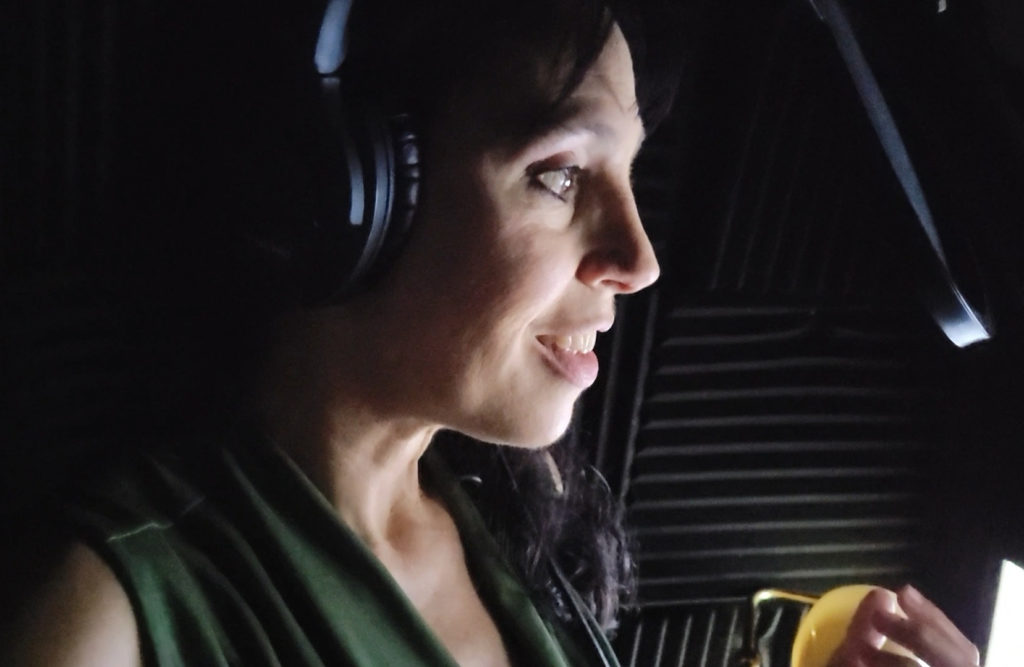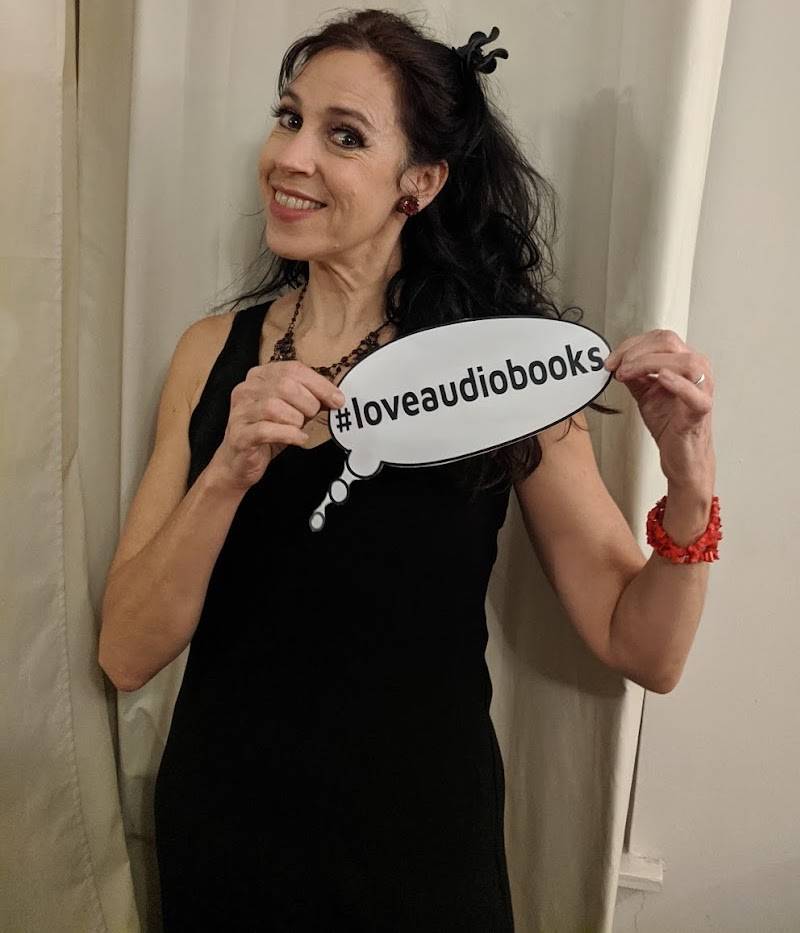It’s true that stage acting and audiobook narration are not exactly the same thing, and personally I wish acting programs included a Voice Acting class, but don’t worry! That doesn’t mean traditional actors don’t make good narrators. They do! Often the best, in fact. Few students go to theatre school to become voice over actors, but so many go on to excel at it. Most importantly, if you become an audiobook narrator, you’re absolutely not giving up your dreams of stage and screen. Many of my VO colleagues do more than one thing, but some find their most lucrative jobs come from voice acting—it pays the bills and uses our numerous talents. If you’re considering adding this form of acting to your schedule, think about these things.

How to call on your acting expertise
Narration is a performance, actually many performances. In a show, you’ll likely play a few parts, at most. Maybe in a local production, you’ll wind up with one main part and a few background characters. I’ve done Audiobooks where I’m voicing dozens or even a hundred over the course of a series. Each requires extensive development. In addition to understanding the POV, there’s the accent, the pacing, the timbre, and the pitch. Nothing is worse than phoning it in and not giving an important person in the story their due. This all means that you bring your background of creating a character and use that skill many times per book.
Sometimes I am narrating a different book each week. In those moments, the skills I built doing repertory with evening AND matinee shows are so valuable! Being able to sink back into a book’s characters quickly and thoroughly brings the scenes alive, and makes the process smooth. No stopping every time someone else speaks!
How to build characters and narrative
I’m frequently recording for 3-6 hours a day and may go through hundreds of characters per month. Remember, this isn’t just reading a book! Instead I approach the work as a story and fill in from there. Where is the tension? What does each person’s arc look like? How would you chunk it into scenes or acts were this a show? Thinking about these things in advance allows me to move through the work seamlessly in the booth (and cuts down on the number of pickups I’ll have to do later).
My advice: during your first readthrough, let the piece guide you to discover how each individual would approach the situation and then add in the narrator (assuming third person) to weave everything together. It’s actually a lot of fun to play the protagonist and antagonist, not to mention all the kids, animals, and magical creatures that you don’t normally inhabit on screen or stage.
How to record your first book
Before you do anything else, LEARN. Go to Narrators Roadmap https://www.narratorsroadmap.com/ and absorb as much as you can. It’s the single best first stop. There are also some great facebook groups, but remember, not everyone has good intentions or enough experience to be giving tips! Next, LISTEN. To as many audiobooks as you can. Put your earbuds in while you walk and work out or load them some into your car. Especially award-winning ones and those in the genre you want to record.
Now that you are ready to begin, look for work on ACX or Findaway. Beyond that, like all parts of the acting world, it can be tough to get audiobook reader jobs that pay appropriately. One option is to do a book in the public domain and put it out into the world so that you start to build that resume. This does involve some start-up cost as you have to pay for studio time and sound editing, but if you have low-cost access to those, it can definitely be worth it. One quick note here, beware of scammers who post on job boards and insist you pay them for rights with the idea that you’ll get a rev share later. Research carefully and only apply for jobs that check out.
Okay, now what?

If you’re just starting out, there’s a lot to learn. Here are a few things I have discovered over the past decade working on audiobooks.
Go to conferences
There are dozens of events throughout the year, and I’ve met amazing people at them. While a few are invite only, many are open to actors looking to soak up knowledge and meet pros. Bring an open mind, hungry to absorb info from veterans, producers, and sound people. You won’t believe how much everyone wants to share and boost up the career of a young actor looking to break into the field. You don’t usually learn about this specific type of performance in school, so leave assumptions at the door.
Invest in authors
So much of my work comes either directly from authors or with their recommendation. Like all industries, people talk and they know each other. Don’t be the narrator who gets a reputation for not taking feedback well or ignoring the author’s additional notes. I’ve even become quite good friends with some of my writers, which only leads to better networking, not to mention wonderful connections.
Pick a niche
You don’t want to get pigeonholed, but it can work to your advantage to excel at one particular genre. Perhaps you most enjoy non-fiction and want to focus on authors who write about an in-depth topic? Becoming an expert at business acronyms or medical jargon represents a huge advantage for you. I specifically worked on romance, fantasy, and YA for many years early in my career, and it helped to give me focus. To make sure you don’t get “type cast,” throw in an off-brand book now and then and highlight that on your pages.
Don’t go at it alone
I’ve mentioned before that I enjoy the somewhat solitary nature of recording an audiobook, but the truth is I couldn’t do it without a whole team, including my sound engineer and fellow narrators. And don’t forget coaches! Great coaches work one-on-one with you to help you consistently deliver your best performances and help new narrators transition their acting skills to the world of audiobooks.
The good news is, you absolutely can find work as an individual but it often helps to get on the roster at some publishing houses, agencies, and production companies. Once you prove yourself and they get to know your sound, you can expect a steady stream of jobs to come your way, vetted and contracted.
Some start out knowing they want to make their mark on the VO world while others find they have a love for storytelling that can’t come from anything else. Regardless, there’s so many wonderful things about being a narrator, and it’s well worth the effort. Try out a few of these ideas or follow me and other artists on social to get more info on how to become an audiobook narrator.